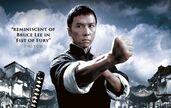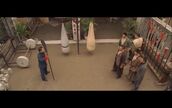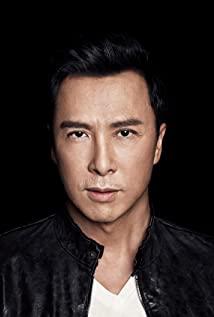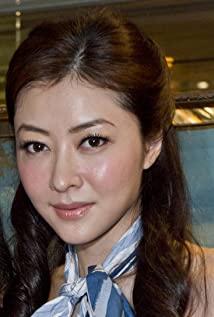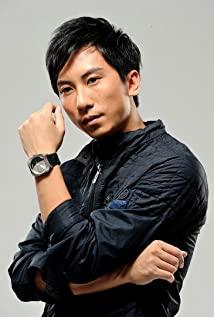This article is divided into three parts: general feeling, impression of the protagonist, and a little reflection. The first two are why I like this movie.
The biggest shock to me from this film as a whole is the bloody nature of the man: as a man, the more you face difficulties, the more you have to be calm, self-motivated and brave to go straight to the destination. At the end of the film, Ye Wen's victory over Miura may be due to the superior external skills of martial arts, or the Confucian spirit of martial arts, but in my opinion, the key to Ye Wen's victory lies in such a spirit: we Chinese, absolutely not. You will lose to the Japanese, even if you starve for three days and three nights, and go to the battlefield without all your limbs, you are not my opponent. Those who are timid and hesitant, even if the actual kung fu is high, the psychological quality will make the martial arts show back when facing the enemy, and they will be defeated.
The film has a startling contrast: the comparison of team spirit between China and Japan. When I was very young, I heard people laugh at us Chinese: "In terms of intelligence, one Chinese is a dragon, but three become worms." When Wu Chilin arrived at the competition, Miura was challenging the Chinese: he was one Japanese person than the three of us Chinese, and the rule was that no matter winning or losing, everyone who came to power had a bag of rice. Wu Chilin and two compatriots came to the stage to challenge Miura, but just after he played a round, his companions flinched and did not make a move at all. Not to mention the national humiliation and family feud between China and Japan, are they still fighting as a team? If I were Wu Chi Lin, I might ask to change teammates before continuing to compete, but Wu Chi Lin couldn't care about that much. From the beginning to the end of this competition, Wu Chi Lin was fighting against Miura. Wu is obviously not an opponent, but he has long regarded life and death as a matter of time, and he is desperate to express this vicious anger, because this is the only way for him - as a martial arts practitioner - to resist the Japanese in that special period. (ps we can see that Miura only wanted to learn martial arts at first, and did not maliciously hurt the Chinese, so any Chinese who supported Wu Chi Lin could also get rice if they were defeated; but many Chinese who went for rice, or It is out of the mentality of "a good man does not suffer immediate losses", shrinking back and sitting on the sidelines...).
On the other hand, when Ye Yi was one to ten, the Japanese army was indomitable, especially the tenth... It can be seen that the first nine teammates have all been killed, and they know that their kung fu is very different from their opponents, but they were defeated by Ye. After that, he got up to fight, and he never gave up until the last moment when he was beaten to death by Ye. Does he not value life? I think even if there are no similar people around, he will not give up when facing Ye alone, because the Japanese have almost perverted national pride and pride. In the anti-Japanese films I watched since I was a child, the plots of Japanese pirates committing suicide by caesarean section were very indiscriminate, but I will always remember the expression of this Japanese soldier in "Ip Man". I think the rise of a country, as small as the take-off of an enterprise, is the result of collective efforts, not individual heroism can lead. Therefore, I will always remember the importance of teamwork in the future, because this is the key to victory, especially when the enemy is facing.
There are too many shining points in the personality of the male lead in the film, which are worthy of my repeated taste.
One, the professional level. The superb martial arts attainments have reached the realm of overlooking the common people. It can be seen from the dialogue and sparring scenes between him and Muay Thai Master Liao and Shandong Jinshanzhao. Of course, maybe only Donnie Yen can get this kind of bearing, right? How should I put it, the most difficult thing for me to appreciate in martial arts is Jackie Chan. In my impression, he would run away every time he fought, and he would only fight twice with unbeautiful Huaquan and embroidered legs when he was desperate, but don't call it martial arts. Jet Li has real kung fu, but today he seems to be a little more commercial. Li's "Huo Yuanjia" also tried to explain some Confucian truths, but it was a little blunt, not so coherent and blended. Since Zhang Yimou's "Hero", I have been interested in Donnie Yen, but his acting is too little, and some are only supporting roles. This time he is finally the male lead. , that is, the match between Ip Man and Miura was too short and too short.
Second, the principle of being a human being. Embarrassment is one of them. The initial laughter of the film is not Liao Ye's closed-door discussion, but the comparison of dining demeanor. In my opinion, before the fight started, Liao had already lost in life. Since he came prepared to fight, would Liao deliberately not eat before going out? After using the tea and cigarettes, the host asked, "Is it okay to eat?", the guest replied, "Okay, very good." Ye was also very polite when Jin Shan challenged for the first time. In fact, he knew exactly what the bust of these challengers was, but he has always been very humble and saved enough face for everyone.
But he has a measure of his face, at least not affecting his integrity. This is the second. The news of Liao's defeat in Ye's Mansion was widely spread in Foshan. Liao's reputation was damaged, and he was furious to find the "rumor maker" Sha Danyuan to settle accounts, but Ye was a guest at Shajia Teahouse. Sha asked Liao Ye to clarify face-to-face, but Liao Jing... questioned Ye, asking him to say something, and to return his "innocence",,,, sweat. Ye didn't speak, but Wu Chilin cleared the siege from the side. What is the truth, everyone can guess that it is inseparable. When the conflict was over, Ye left Liao with the simple word "please, please", and walked away without any emotion, and continued to talk about him. The posture is clear at a glance.
Although he looked down on Liao and others in terms of professionalism and character, but the national disaster and family feud came, Ye put his identity back to an ordinary Chinese, and tied his destiny closely to everyone's. Wu Chilin's disappearance directly led him to go to the competition site to find out what happened; witnessing Liao being shot and killed at the martial arts competition site, he immediately demanded a one-to-one match, and the competition process basically left no room for life, to relieve the hatred of the Chinese people. The Japanese awarded him ten bags of rice according to the rules of the game - rice is the purpose of many Chinese, including Liao Lai's competition - but after Ye defeated the three major Japanese armies, in addition to bringing back sweet potatoes from coal towing to his lover, he only brought Go back to the bag of bloody rice and make a special trip to hand it to Liao's family. Blood-handling rice should be done by every Chinese during the war, but unfortunately, in this film, apart from Ye, I only see Wu Chilin as a Chinese with such a mind. "Everyone sweeps the snow in front of their own door, don't care about the frost on others' tiles", which is sad.
================Thinking=consideration=================
Reflecting on this film, there is a little doubt about the idea of cultural exchange between China and Japan.
It seems that the male lead created by the movie is not perfect, I mean the seemingly narrow view of the nation. Translating Li Zhao to go to the coal factory to draw people to compete, in fact, it is not wrong. In the beginning of Lenovo, he maintains social order and doesn't like fighting and killing, but he specifically supports Ye and Jin's closed-door discussions. It can be inferred that he himself is more willing to see the Chinese defeat the Japanese in the competition. But Wu Chilin's death made Ye Teng call Li a dead dog and a traitor. Maybe as an angry word, Ye can only say so; but at that time, could human nature be able to distinguish so clearly? When Ye handed over the relic containing the kite to Shadanyuan at the cotton spinning factory and left this sentence: "Remember, your brother was killed by the Japanese", I really wanted to "correct" this statement. Ye put emphasis on "Japanese". But thinking about it again, I don't know if there is any way to "correct" it. Maybe what Ye said was not wrong at all.
How should the historical hatred between China and Japan be faced today? If the Japanese people today really admit the historical facts of aggression against China, the politicians are sincerely sorry, should we maintain a peaceful attitude to do economic and cultural trade with them; The mentality of hostility to China has always existed as a remnant of inferiority, and we never have to expect them to repent - it seems that this is a "reasonable" continuation of history - so how do we face today's Yamato nation?
There are many words in the film that are classics. I plan to download the lines again, find them all and put them on another blog for a record. One sentence that I particularly remember at the moment is what Ye Jiang said when he was about to face Miura: "Although martial arts is a kind of armed force, our Chinese martial arts contains the philosophy of Confucianism. It is the truth that you Japanese will never understand! Because you abuse violence, turn force into violence, and oppress others, you are not worthy to learn our Chinese martial arts!" , I just goooogle this line from the movie theater, but unfortunately I got nothing, so it became the direct reason why I went to the movie theater for the second time.) This kind of expression of Confucianism, I have read in Bruce Lee's expansion film; this kind of idea , as mentioned earlier, Jet Li also tried to express it in "Huo Yuanjia", but in terms of my audiovisual and perceptual effects, "Ye" is far better than "Huo".
In the eyes of historians, the episode of Ip Man and Miura's martial arts match should be nonexistent; the screenwriter created this episode, in addition to dispelling hatred, I think it is to satirize today's diplomatic situation and remind us to be wary of Japanese militarism. . Li Zhao's words "In order to strengthen the cultural exchanges between China and Japan and realize the true peace of Sino-Japanese exchanges..." and so on. Such obvious irony is very harsh, indicating that the Sino-Japanese friendship is nonsense after all. I believe that most Japanese people are peace-loving, but as long as there is a certain force of Japanese politicians, the history of aggression against China in the last century must be repeated in some other form.
Regardless of whether the competition in the story has happened in reality, in today's peaceful age, should we teach Wing Chun to the Japanese, and should we exchange martial arts experience with the people of other countries that have invaded China? ?
Naturally, I think of "Farewell My Concubine", Yu Ji said in court that Aoki knew Peking Opera, so in order to save Bawang, he sang "The Peony Pavilion" to the Japanese, and he even expressed a kind of feeling in court. Hopefully, there will be more and deeper cultural exchanges between China and Japan, and we should spread Peking Opera to Japan. These two stories seem to have the same historical background, but the protagonists take diametrically opposite positions. How would you feel if it were you?
View more about Ip Man reviews





